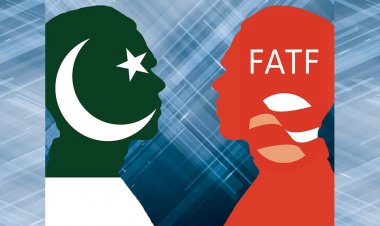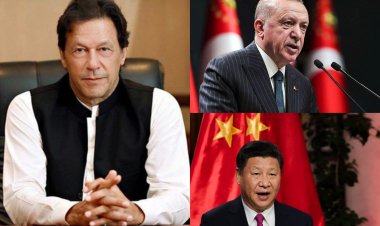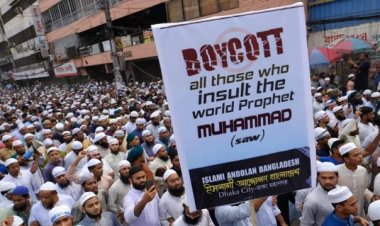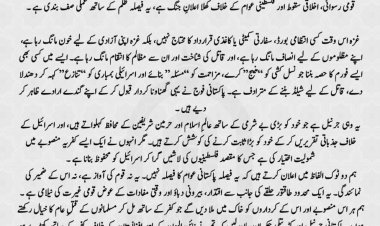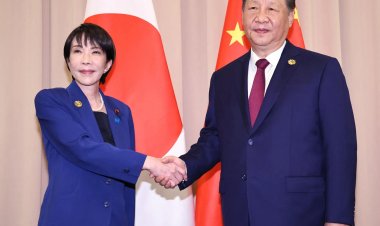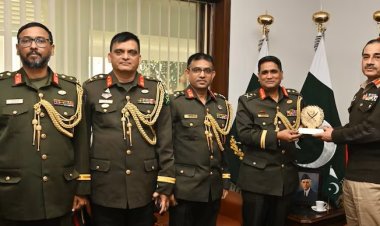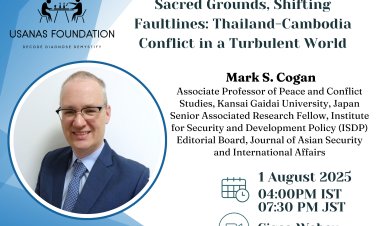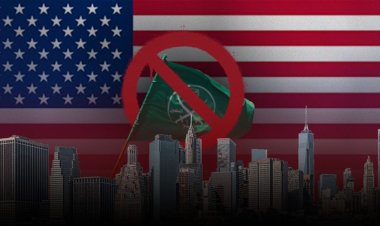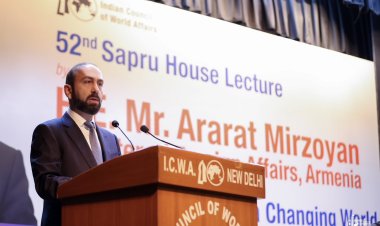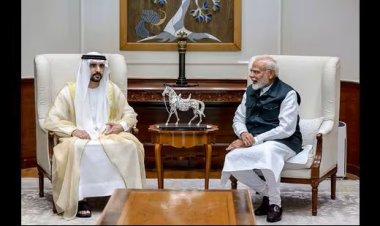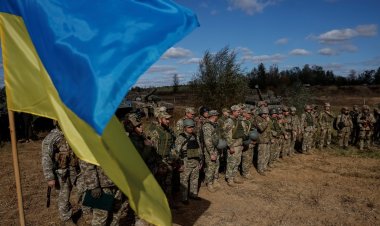Myanmar- The Road to Democracy and a New Global Impression
The need for Burma to step up and start talking
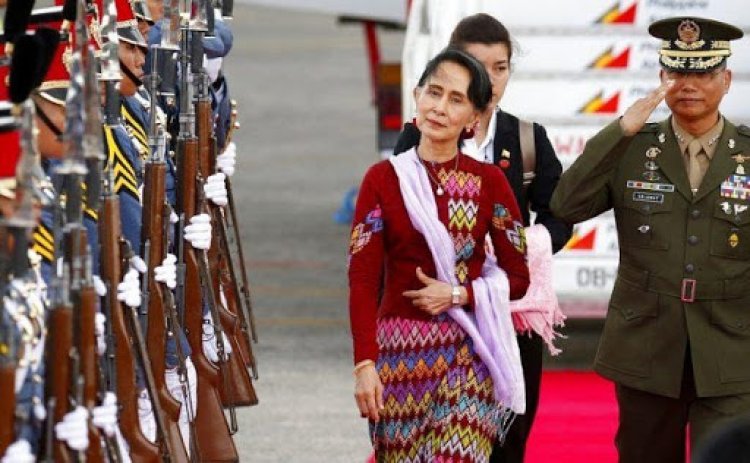
Commentary
By Shahana Joshi
On November 8th, the ruling party of Myanmar, the National League of Democracy (NLD), led by State Counsellor Aung San Suu Kyi, emerged victorious, marking the first-ever democratic transition of power and second consecutive win in a general election. The victory ushered in the hope of a complete transition of Myanmar from a Military junta controlled State to a democratic republic. Although the general elections are a sign of Myanmar's positive transformation, like any other democracy with many domestic frictions, Myanmar's democratic credentials are poised with an ethnoreligious rift.
Amidst a slew of issues that come with any newly formed democracy, Myanmar has been in the news for the last few years over allegations of religious persecutions of minorities. The landslide victory of the NLD has given the party a thumping majority in both the upper and lower houses of Myanmar's parliament. However, a technicality in the 2008 military-drafted constitution prevents Suu Kyi from being the President, and she, therefore, remains State Counsellor. Moreover, while the NLD may have the popular vote within Myanmar's borders, its Oxford-educated leader's love affair with the West ended on a bitter note in 2017 when reports of indiscriminate mass killings, rapes, and tortures of Rohingya Muslims started emerging from Rakhine state. As of today, more than two years later, the alleged genocide of the Rohingya is pretty much the only discourse on Myanmar amongst the international community. While it is imperative to pay attention to any human rights violations in any given part of the world, in the case of Myanmar, the country stands accused and condemned of a genocide without any real and tangible evidence supporting such accusations.
The Western media has been quick to judge without a thorough understanding of the situation on the ground and with very little research regarding the historical background of the Rakhine state, the socio-political and economic factors, community dynamics of its inhabitants. The closest that the world has come to having any picture of the issues within and outside of Rakhine state is the UN Fact-finding Report of the Advisory Commission of Rakhine State chaired by Kofi Annan on August 23rd, 2017. While the report does elucidate human rights violations and violence against Muslim minorities, it refrains from using the term' genocide.' It also openly admits that there is a dire need for the international community to grasp the "sensitivities" of Rakhine State fully.
With the cries for help from the Rohingya and the global outrage, it is unfortunate to see that a country as resource-and culture-rich as Myanmar is becoming synonymous with mass-killings and defiance of international human rights protocols. While human rights violations and targeted ethnic cleansing are a legitimate concern, one cannot help but notice the fact that there has been little or no push-back from the government of Myanmar as a defense or even a justification. The government, mostly represented by Suu Kyi, tends to speak only when asked or when there is a significant amount of international pressure, which leaves the international community open for speculative narratives, hearsays, and blatant allegations.
Other than the occasional interviews and conferences where Suu Kyi has been pushed against a wall with 'disproportionate measure' accusations, the most that has been expressed by the Government of Myanmar was her statement at the International Court of Justice (ICJ), the UN's principal judicial organ, when summoned by the court over the case brought forward by the Gambia against Myanmar. This was the first time Suu Kyi spoke at length, defending her country and her people.
The Military Junta holds 25% of the Myanmar parliament seats, including key cabinet portfolios such as border affairs and home affairs, which are both crucial to the Rakhine unrest. While Suu Kyi has often stood to be scrutinized and questioned by the West, she seems only to do so when forced to. A clear understanding of the Rakhine issue is yet to be made officially available to the rest of the world. The international community seems to have turned a blind eye regarding the radical Islamic insurgent groups within Myanmar, such as The Arakan Rohingya Salvation Army (ARSA), ) which has all but fleetingly been in the public eye. The Rohingya refugee crisis intensified and culminated in thousands fleeing the region, only after the attack on military checkpoints on August 25th, 2017 by the ARSA.
With the ongoing clashes between the Burmese Army and the ARSA in the Rakhine, there has been a very narrow focus on the reasons behind the clashes and how the Islamist ideology of ARSA is proving to be a threat to the region. There is very little reportage of the radicalization of Rohingyas refugee camps, resulting in an information gap that needs to be filled by the State of Myanmar. However, there are reports of the ARSA having ties to larger militant groups such as the Bangladeshi wing of the Jamaat-e-Islami, allegedly assisting ARSA to procure weapons to be sent over to the Rakhine via Rohingya refugee camps in Cox's Bazaar in Bangladesh. Although the government of Bangladesh has refuted the claims, there have been multiple reports and accounts to suggest that there has been an attempt to impose Sharia law in refugee camps by ARSA militants.
Myanmar is a small yet complex nation of the South Asian region, and very importantly, a vital strategic outlet to the Indian ocean. China, which has termed the situation in the Rakhine as 'complex,' and is doing all it can to boost its relationship through investments in Myanmar, which will undoubtedly play an essential role in how this newly formed democratic nation appears to the rest of the world. Not to mention the impact this partnership will have on India and its geopolitical interests in the region. Collection of data, state-funded fact-finding missions, regular briefings or telecasts on the situation in the Rakhine, as well as updates on reports of terrorist activities in the area, are a necessity for the Myanmar government to be more vociferous in its approach to the issue on the world stage in order to mobilize support for the push back against the ARSA, which is truly the exigent need of the hour.
With Islamic terror wreaking havoc across the globe unprecedentedly, the international community must take a step back and look at this issue from a varied perspective before choosing sides and pushing Aung San Suu Kyi to a corner. Moreover, as far as she and her government are concerned, it is undoubtedly high time they address the issues at hand from their perspective, lest they should bear a similar fate to the countries that were too late to do so.
Shahana Joshi is a Fellow at Usanas Foundation. She is a graduate in Public Administration and Policy from the Fels Institute of Government at the University of Pennsylvania.
Disclaimer: This paper is the author's individual scholastic contribution and does not reflect the organization's viewpoint.

